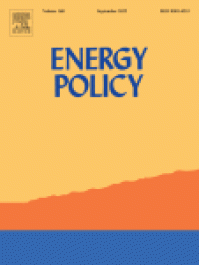
The article „Limits of household's energy efficiency improvements and its consequence – A case study for Hungary" by Gyula Gróf, Béla Janky and András Bethlendi has been published in Energy Policy.
Abstract:
Many energy-efficiency programs at the national and EU levels target the residential building sector. Investment in the renovation of buildings results in increased energy efficiency and can minimise energy utilisation when up-to-date technique and accurate planning is performed. The realisation depends on many subjects. One critical objective in the planning process is the financial status of the families living in the building stock subject of the renovation projects. A complex approach is essential in housing renovation programs, and the consequences of different energy policies in each country should be considered. This study reports the possible level of Hungarian prebound and its consequence on the energy efficiency mortgage loans. The heating expenditure varies by household's income situation and/or the dwelling's technical characteristics. A mixed picture was found, reducing available expenditure and, typically, higher monthly savings rates for smaller dwellings. We found that the prebound and rebound effects and credit constraints might limit a nationwide energy renovation program. Furthermore, the fixed residential energy price policy can impair the effectiveness of housing renovation programs. We found a minimal positive effect on banks' expected credit loss and the regulatory capital requirement on home energy-efficiency improvements.
Available here: https://doi.org/10.1016/j.enpol.2022.113078

